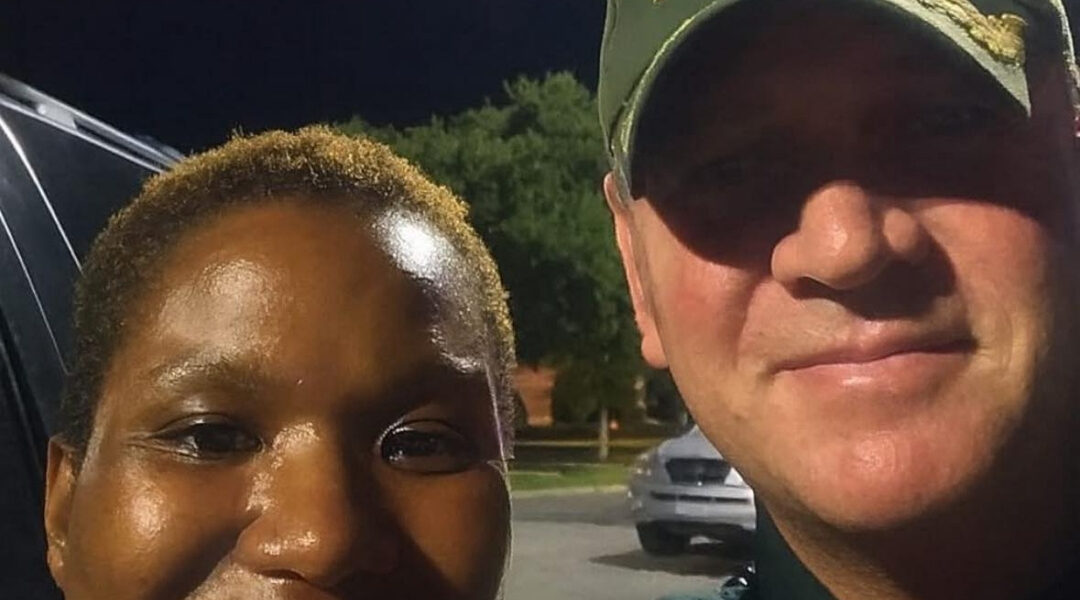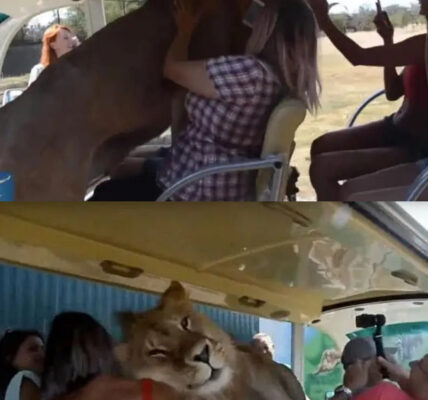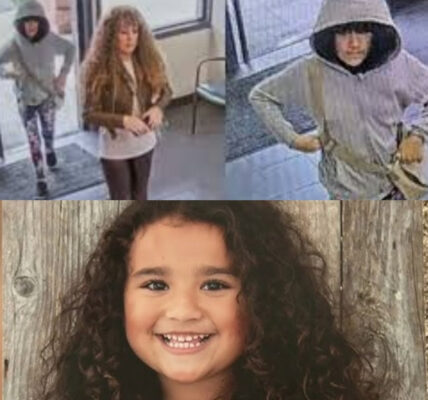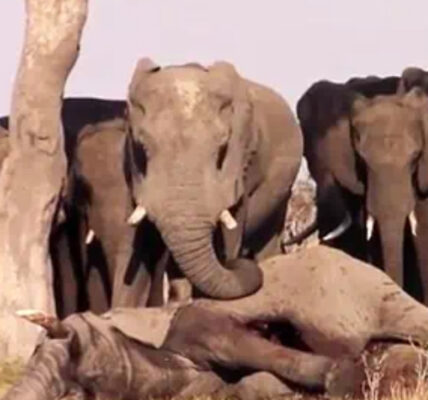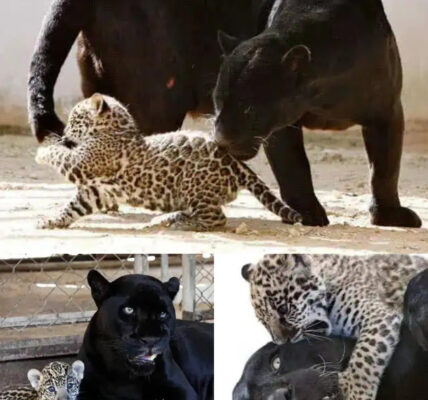
It was near the end of a long, exhausting day. The kind of day that blurs together — hours of patrol, paperwork, and the quiet heaviness that comes from wearing a badge in a world that often forgets the person behind it.
As the officer sat in his patrol car, window rolled down to catch a bit of air, a woman approached hesitantly. She held two Walmart bags in her hands, her expression uncertain but warm. “Please take these,” she said softly. Before he could even ask her name, she turned and started to walk away.
Inside one of the bags was a handwritten note — scrawled on the back of a crumpled receipt. The words stopped him cold.
“Thank you for choosing to be who you are. My 10-year-old son, Rashad, wants to be a SWAT officer one day.”
When he looked up, she was gone.
He climbed out of his car and spotted her across the parking lot, the late afternoon light catching her face just as he called out. She smiled, almost shyly, and what followed was not just a conversation — it was a moment of truth in a world desperate for reminders of our shared humanity.
Her name was Shameka Batiste, and she spoke openly, from the heart. She told him about her son Rashad, who dreamed of wearing a uniform like his. She talked about the lessons she tried to teach her children — that people should not be judged by the color of their skin, but by the content of their character.
“I teach my kids to see people, not color,” she said. “We’re all the same. You’re not just a police officer — you’re a man, a son, a father. That’s what I tell my boy. To see people for who they really are.”
For the officer, her words landed deep. In a city where headlines and politics so often painted law enforcement and communities as enemies, here was a woman standing right in front of him, bridging that divide with nothing more than kindness.
He told her he had been a SWAT officer for almost nine years — that he loved his job, but that it wasn’t always easy to feel appreciated. “I’d love to meet your son one day,” he said, smiling. “Tell Rashad I’d be honored to show him what this job is really about.”
Shameka’s eyes lit up. They talked for a while about life, about struggle, about hope. She admitted that her family had been through hard times, but her faith in goodness hadn’t wavered. “The world’s full of noise,” she said. “But I tell my kids — listen for what’s right, not what’s loud.”
When the conversation came to an end, they hugged. Not once, but several times — long, genuine embraces that spoke of understanding and respect. Before she left, she looked him in the eyes and said, “Stay safe out there. We love you.”
As she drove off, the officer sat quietly for a moment, still holding the note. The weight of her words — and her gesture — began to sink in. In the bags she had handed him were a liter of Coke, a bottle and a half of water, two bananas, an apple, an orange, and a massive sandwich. Simple things, yes. But they carried the weight of compassion in a world that so often feels divided.
Later, reflecting on the encounter, the officer wrote:
“In a city where our leaders seem determined to divide us by race, this young lady didn’t see color. She saw a man — a son, a father — doing his job. She said my parents must be proud of me. Why can’t everyone see that?”
The story of Shameka Batiste isn’t about politics or policy — it’s about perspective. About a mother who chose love over anger, gratitude over judgment. In a time when so many voices seek to divide, hers reminded us what unity truly looks like: the courage to see one another as human first.
That day, she didn’t just hand over a bag of food. She handed over hope — a reminder that decency still lives quietly among us, waiting for someone brave enough to show it.
The officer still keeps her note, its ink a little faded now, but its meaning still as strong as the day it was written.
Because sometimes, the most powerful change doesn’t come from speeches or protests. It comes from a simple act of kindness — one person choosing to see another not through fear or difference, but through love.
Thank you, Shameka Batiste, for reminding us that even in a divided world, empathy is still the strongest force there is.
